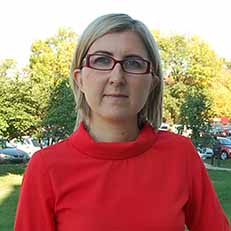BLOOMINGTON, Ind. - Marta Venier, an assistant professor at the Paul H. O’Neill School of Public and Environmental Affairs, has been appointed to the Great Lakes Science Advisory Board of the International Joint Commission, a partnership between Canada and the United States to protect shared waters for the benefit of today’s citizens and future generations.
Created in 1909 via the Boundary Waters Treaty, the IJC approves projects that affect water levels and flows across the boundary while investigating transboundary issues and recommending solutions. Venier is regarded as a leading expert on the behavior of persistent organic pollutants, particularly when it comes to perfluorinated compounds, or PFAS, also known as “forever chemicals.”
“I’m incredibly honored to become a member of the Great Lakes Science Advisory Board,” Venier said. “I’m looking forward to lend my expertise to the Board on scientific matters relevant to the Commission.”
Great Lakes Science Advisory Board members usually serve a term of three years. Board members offer their expertise and advice to the Commission to help it develop advice for the governments of Canada and the United States regarding implementation of the Great Lakes Water Quality Agreement of 1978, as amended.
Since November 2019, Venier has been leading the Integrated Atmospheric Deposition Network (IADN), a monitoring program funded by the U.S. Environmental Protection Agency. IADN measures concentrations of persistent toxic chemicals in air and precipitation at five stations on each of the Great Lakes. The main objectives of IADN are to determine spatial and temporal trends of toxic chemicals, identify point or regional sources of toxic chemicals, and discover emerging chemical threats to the Great Lakes.


